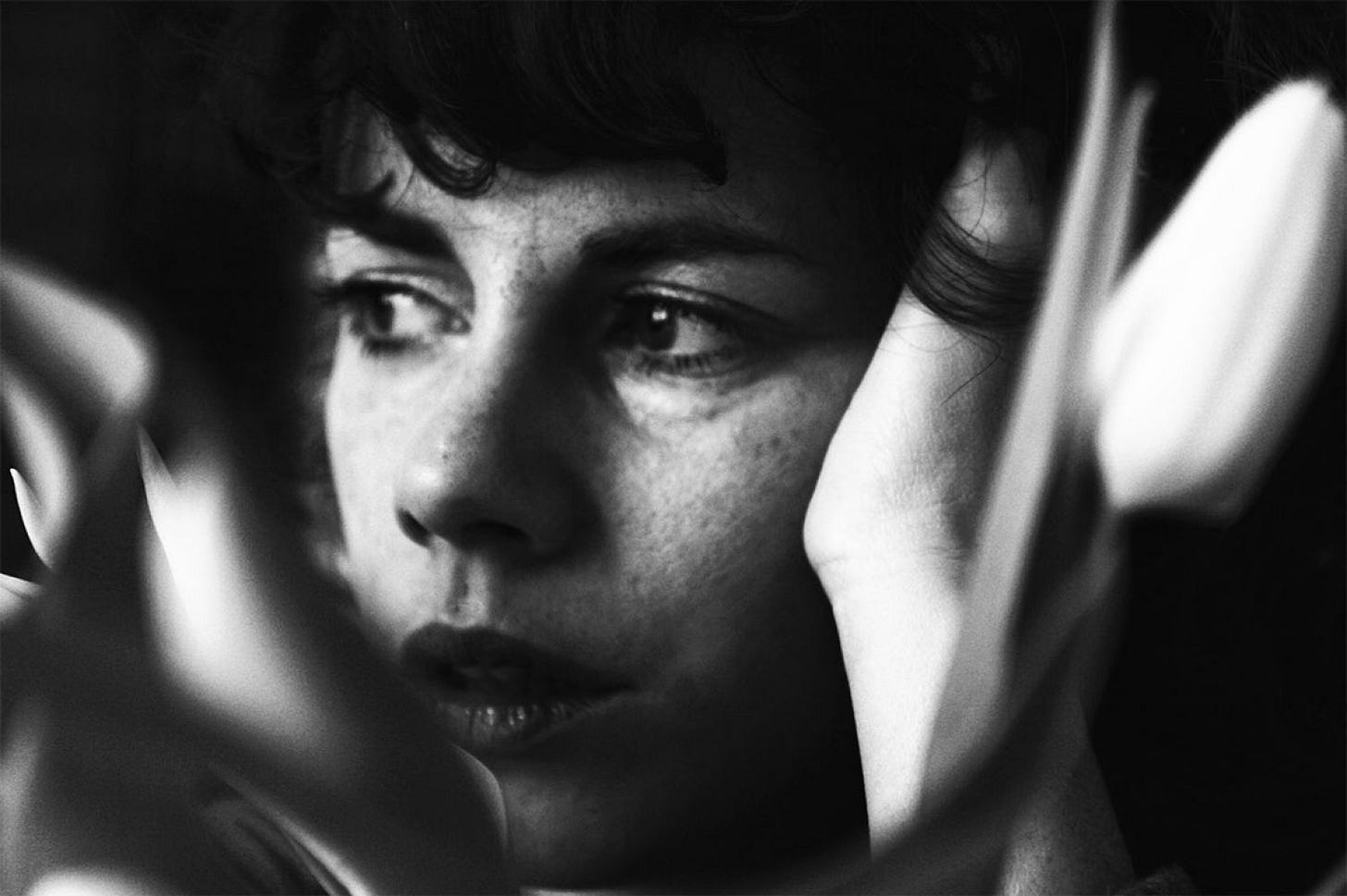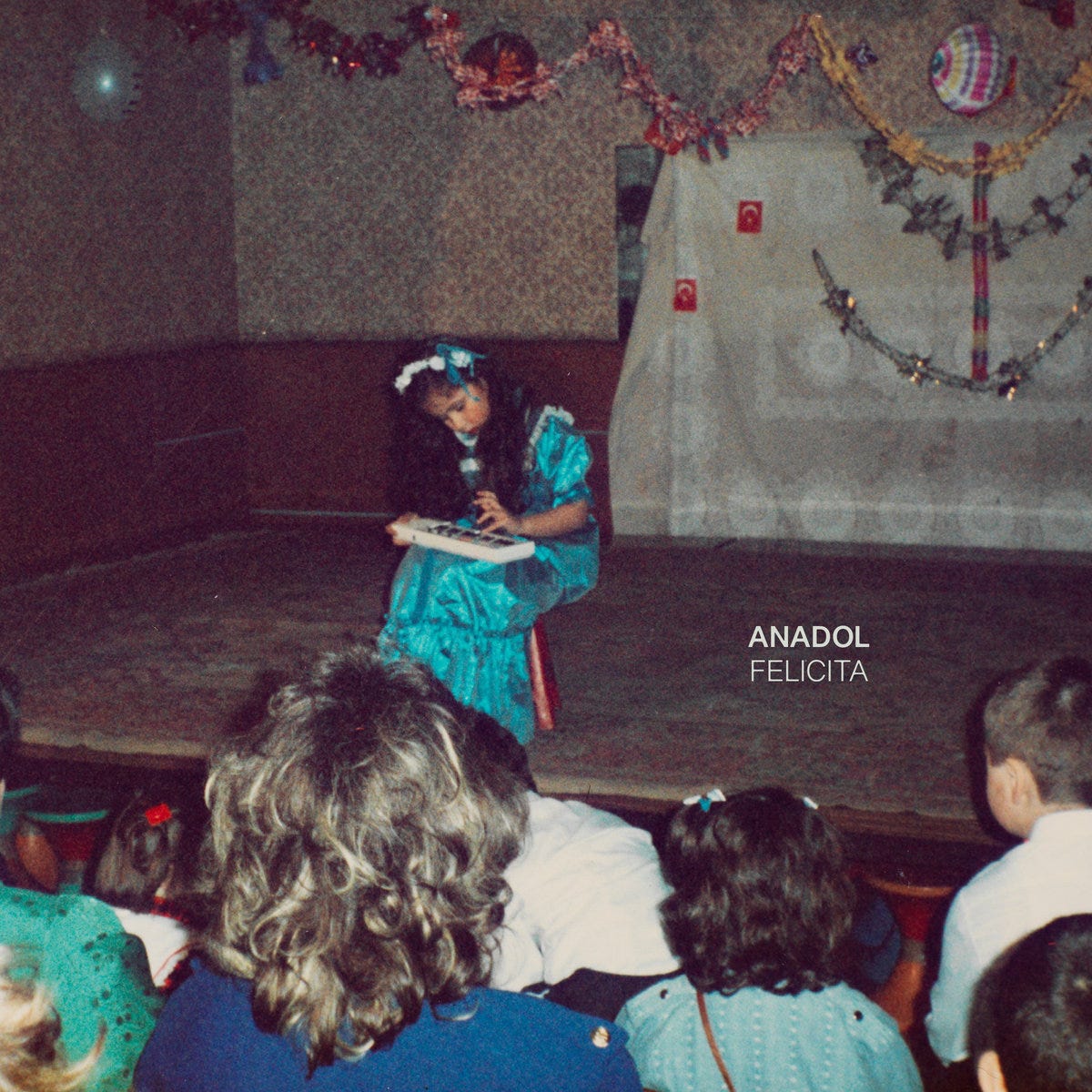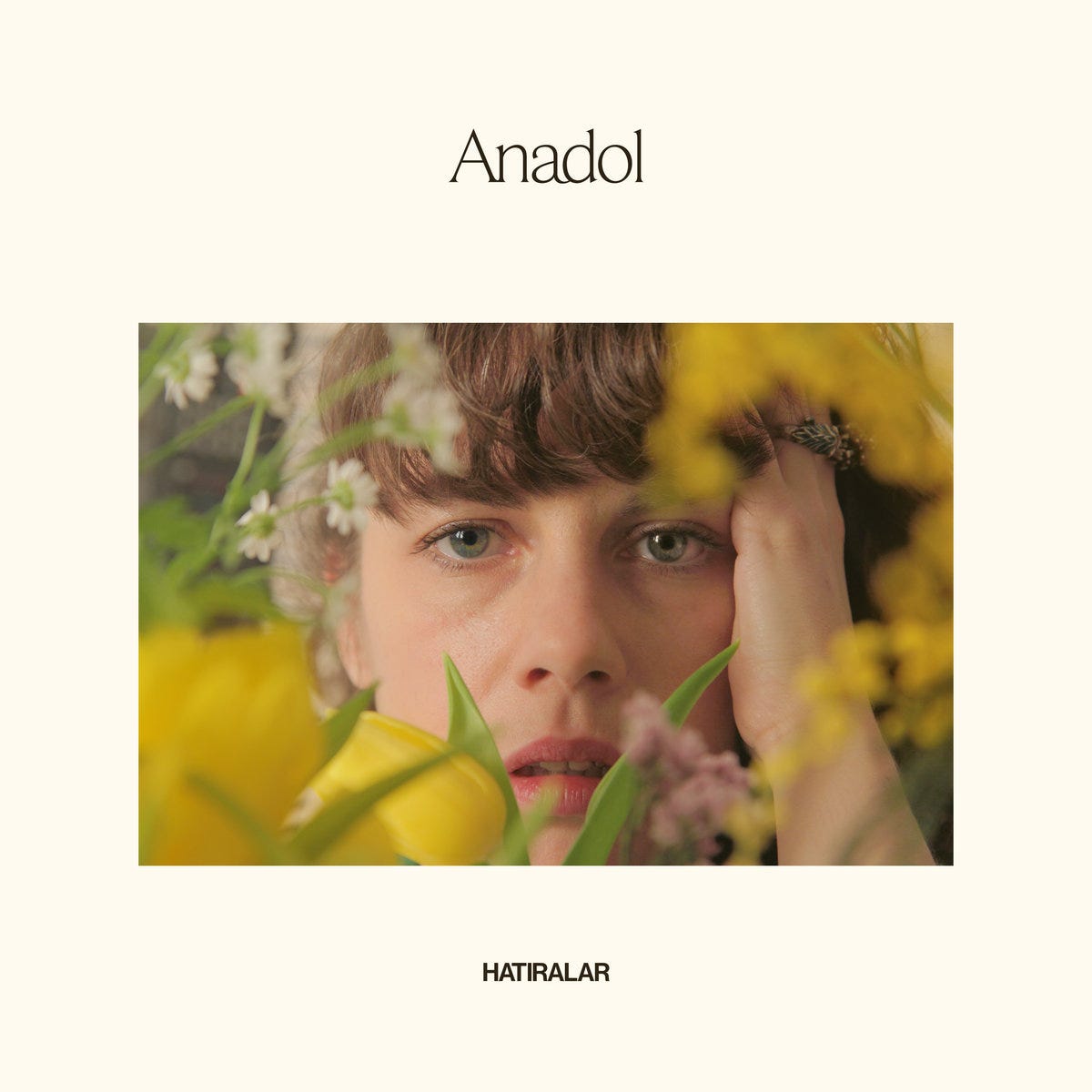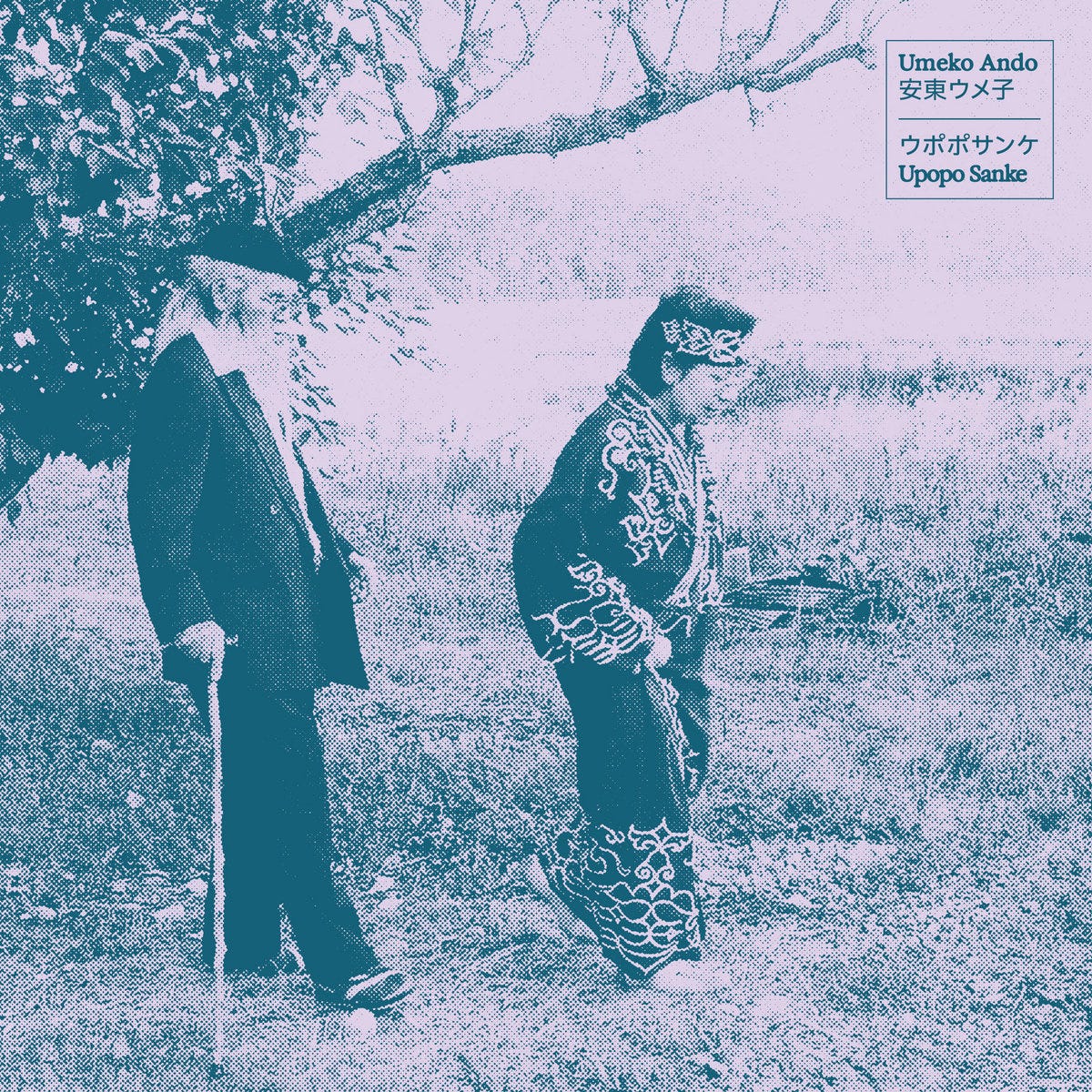A label you can trust. The magic of Pingipung.
An enthralling artist and label are kind of obsessing me at the moment.
God bless Pingipung. This side of Analog Africa this Hamburg-based imprint are pretty much the only Western-based label I can trust. Everything they’ve put out in their 20 year history has been interesting but ‘interesting’ is the kind of word critics use for music cos they get all their music for free - listeners can’t afford committment on such nebulous lines of ‘interest’.
For listeners and fans, trusting a label again, rather than an artist or someone on social media whose taste chimes with yours, is tricky and rare. But in Pingipung’s case I’ve found a handful of recent releases that have absolutely blown me away to the point where I have an ear cocked for EVERYTHING they bring out. Cos these five records are astonshing. The first thing that hipped me to Pingipung was this total and utter stone-cold red-hot masterpiece which I first heard in 2021. Anadol’s ‘Felicita’.
Here was a sound I’ve been searching for my whole life - a heavy, funky, dubby sound that sounds both ancient and contemporary and Turkish artist Gözen Atila (who performs as Anadol) hit it dead on a minute into the stunning opener ‘Gizli Duygular’. Like Gwenno’s ‘Le Kov’, it seemed that Atila was performing fascinating games with the ideas of native tradition and authenticity - without a doubt the album was lit up with Turkish psyche and traditional music but where she took it was somewhere else, somewhere both placeless and yet absolutely suggestive of Atil’s own expanding environment.
Anadol is a very postmodern Turkish artist - you can hear both the influence of Turkish pop and Arabesk music from Turkey but also folk, chanson, Greek music, American rock and jazz, in Atil’s hands ‘Felicita’ emerges as deliciously fluid, gliding across genres to create something truly kaleidoscopic and engrossing - her use of a roster of Istanbul jazz musicians to flesh out her vision means that the music here is immaculately realised but has the grit and grain of great hip hop. ‘Gizli Duygular’ is like Khruangbin or the Heliocentrics in its heft and grace, a wonderfully wide-screened ocean of dark funk to drown in. ‘Eciflere Gel’ collages found sounds with cute lounge-core, arabic-textures and liquid sax-runs to posit a truly fourth-world vision of pop.’Ablamin Gozleri’ harnesses those jazzy arabic melodies to a wonderfully understated casio-tone backing and Atil’s massively suggestive whispered vocals before the stunning ‘İstasyon Plajında Bir Tren Battı Ablamın Gözleri’ sees scratchy math-rock bass prangs metamorphose into sighing pellucid fusion-jazz over thirteen bewitching minutes. ‘Felicita’ means happiness but what Anadol explores lyrically throughout is just how nuanced, precarious and ambiguous happiness can be, a happiness the music here plants firmly in the heart and head of anyone lucky enough to bear witness. This album has only grown in my affections and esteem since it first blew my mind. It’s one of this decade’s true masterpieces because you keep hearing new things, new suggestions, new thrills and pleasures, every time you drop a needle on it. And like any masterpiece, it necessitated reverse reconnaissance. What the hell else had Anadol made? First I ran into this, initially released in 2018 on Kinship and only on tape, thankfully salvaged and rereleased by those lovely Pingipung folk.
This was Gözen Atila’s third album under the Anadol name and it’s actually grown to be perhaps my fave of her remarkable work. Based on collective improvisations of middle-eastern folk songs called „uzun hava“ again the results are simply, complexly magical. It was possible to also ascertain more information about Gozen, which I’d long wanted but was scared to discover in case it dispelled the mystique of the sound. It didn’t, if anything it amplified it. During her studies in music technology in Istanbul, an education Atila calls ‘the darkness of serious music’ she found herself stymied by the academic approach, attempted to belong, hit frustration, and then broke free through this lo-fi synth pop she started making. She was also concurrently making radio plays, field recordings and its that expertise in sound design, in editing, but also a dead-on peach perfect sense of what makes pop work that you can hear throughout this miraculous record.
Opener ‘Görünmez Hava’ thrums on a La Dusseldorf-style pulse but what transforms it is the detail she weaves in, the psyche guitar, the delicious bleeps and bloops and the sheets of sheer echoey noise, all bought in and detonated at that precisely perfect imperfect moment to still give delight and surprise. ‘78 Yılının En Uzun Dakikası’ is a heavily reverbed chop of acoustic guitar over which electric guitars and pedal steel bleed and surge, theremin-like sounds accentuating the sense of gorgeously strung-out yearning. It’s just staggering to listen to because you know it will never ever exhaust you or stop rewarding you. The faintly dissonant piano at the heart of ‘Ay Çürüdü’ sets a backdrop before which you hear squealing sax, sudden pressure-drops and depthcharges, layered chorales, laughter . . . throughout Atila’s music you can only imagine the way this stuff was recorded but her music manages to remain both semi-improvisational AND pop in excelsis. The stunning 10 minute ‘Ya Evde Korksan’ illustrates both Atila’s amazing restraint but also the way she edits a piece together like Teo Macero in his prime, compositionally building, subtracting, focusing, elaborating like no other contemporary producer I can think of at the moment. Genius.
For folk like me only now retrospectively working through the work of this major artist, Pingipung have just gratifyingly reissued Anadol’s debut LP. As a fan less of ‘progression’ (is there a more revolting term in pop - and it masks a lie too, we don’t progress we just grow into different shapes around our eyes) than monomania it’s just wonderful to hear how Gözen started this Anadol spiral, but also all the signs are there already pointing towards the masterpieces to come - from the moment ‘Yapılacak Kadın’ and ‘Her Şeylerin Arasından Göründü Bana Bir Ceylan’ start their pulsing analogue-synth beats into your day and Atila starts blending in her queer melodies and atmospheric textures around that pulse you’re finding yourself both enraptured but also full of questions - for music made on what sounds like deliberately retrograde equipment why does this work as such forward-facing pop? What makes the future anyhoo? What makes this so much more absorbing than so many others’ pootling around on vintage tech? Partly I think it’s down to the fact this never feels like a deliberate magic-ing up of the past - rather it feels like Atila has chosen this series of sounds precisely because of how it LIMITS possibilities away from sheer indulgence and always back towards pop, pop as a way of listening and creating. It’s delicious but disciplined, hugely suggestive but as specific as you like in terms of its coordinates in time and space. If you get nothing else from my rapture I only hope my love of Anadol’s music doesn’t put you off - please please listen. If you’ve ears, you’ll be lost and drowning and blissed out forever.
And so OF COURSE - I had to find out who in hell were putting out this stuff and Pingipung it turned out are an astonishing label. With the usual caveats that you should check out ALL their output let me just point you towards two particularly amazing LPs, one already-dropped and one about to drop. First off this absolute beauty, ‘Not One, Not Two’ by Y Bülbül, Yumurta.
Bülbül is Turkish for a singing bird while Yumurta simply means egg. The London-based Y Bülbül is the main sound-creator here (and check out HIS fab debut ‘Fever’ from 2020), accompanied by Yumurta, a percussionist from Istanbul. “Not One, Not Two" is based on a “one-way transmission” over the course of 3 years (2019-2021) - improvised drum recordings from an industrial estate in Maslak, Istanbul would be sent to another one in Tottenham, London, where Y Bülbül added bass, synths, guitars and field-recordings to Yumurta’s fluidly hypnotic and occassionally startling beats. Already that lockdown-enforced after-the-event manipulation might make you think of the way dub works, but it should also make you think of the suggestive ambience of the best komische and krautrock. Dropping the needle on ‘What Is Behind That Curtain’ the sheer lambent poise of the textures Bulbul throws down shocked me, had to check I hadn’t put on some O’Rang or Eno, and then Yumurta’s rippling beats started getting dubbed and echoplexed across that gorgeous surface and I was hooked. ‘Jah Oto’ shows a refreshing aversion to hi-hats, stays on the racks and toms with the occasional splash of crash/gong (and some brill rattling bells possessed with the spirit of Airto Moreira), the synths and bass Bulbul adds are uncannily reminiscent of the aforementioned Anadol. ‘Maurin Quina’ is shot through with Liebezeit style funk and ‘A Large Room Full Of People’ & ‘‘Kufurbaz Tevfik’ are also uncannily Krautrock-ish, like some lost oddments/sodments from the Faust Tapes before ’I’m This’ and ‘I’m That’ wind a stunning first side up by making you LOSE that comfort of beats for an abstract, Bark Psychosis/Talk Talk style weft and warp of percussive texture and distant post-rock dreaminess, that then thrums into a coda of enfolding warmth, glacial starkness and the kind of reverb you wanna drown in. Just stunning. ‘Thee Aviary Ov Breyers’ which starts side 2 absolutely refuses again to give you any sense of coordinates or predictability, a strange corkscrew of drone and hand drums that keeps daring you to impose order and guesswork on it. ‘Pay No Attention To That Man’ is the most straight-up dancefloor-friendly thing here, instant-movement insisted on by the sheer funky magic of the groove and the hanging arcs of dissonance and found sound sealing an absolute mindbomb before ‘Big K’ winds up this remarkable record with some seriously tasty Bonham/Purdie-triplets & the kind of Pharoah Sanders ‘Black Unity’ meets Miles ‘Dark Magus’ heaviness you didn’t think possible. WHAT an album.
Finally, about to drop on Pingipung is ‘Upopo Sanke’ (which means ‘Let’s Sing A Song’) from Umeko Ando (1932-2004) who was one of the best known artists of the Ainu people - an indigenous, violently supressed community of Japan’s north. The Ainu were classed as ‘former aborigines’ by the Japanese government, their culture outlawed and recently it has been estimated that only 300 people in Japan understand the Ainu language. This album sees Ando accompanied by Oki Kano - I wrote previously about Oki’s astonishing ‘Tonkori in the Moonlight (1996-2006)’, a compilation of mostly traditional Ainu songs in which Oki played the Tonkori harp, a five-stringed instrument thought to have originated in the mid-19th Century on the island of Sakhalin and to have arrived in the main Ainu community of Hokkaido after Sakhalin was annexed by Russia after WWII. You can also hear the Tonkori threaded throughout ‘Upopo Sanke’, a unique sound somewhere between jaw’s harp and balalaika - this album has a more purist and traditional impetus than Oki’s but is just as startling, hypnotic and moving. Oki and Ando are accompanied by members of the female vocal group Marewrew as well as Ainu percussionists, a string player and a male singer who add shouts, encouragement and buzzing throat-vocalising. The mantra-like mesmerically simple structures here mask what you feel could be songs that could be sung for hours, that would accompany life’s living, and move with the pulse and rhythms of heartbeats, that breathe with inhalations and exhalations. If you want it to be, this is meditative, tranquil, but I’d say you’re stretching, or perhaps imposing reductive notions of Eastern spirituality to this music - I actually find it pleasingly jarring at times, especially when those crepuscular elements of the recording scenario creep into the peripheries of the sound.
The album was recorded on a farm in Tokachi in the summer of 2003. You hear dogs barking, thunderstorms in the distance, voices imitating animals, spirits, demons and deities. Fascinating archival anectodal memories about the songs populate the utterly engrossing sleevenotes. Of course, we weren’t witness, what we have here is a recording of something that happened once. But we also feel like we’re tapping into a thread from the past that can hopefully extend into the future. Like music from Polynesia and Micronesia one worries that this sound, this knowledge might be irretrievably lost with time and with changes in the environment. We are incredibly lucky to hear this music at all, and incredibly lucky that Pingipung seem to be committed to bringing us surprise and delight so regularly. A label you can trust, a label you can expect to bring you the unexpected. Get signed up to their wondrous world immediately and start your reverse-connaissance now. God bless Pingipung.







